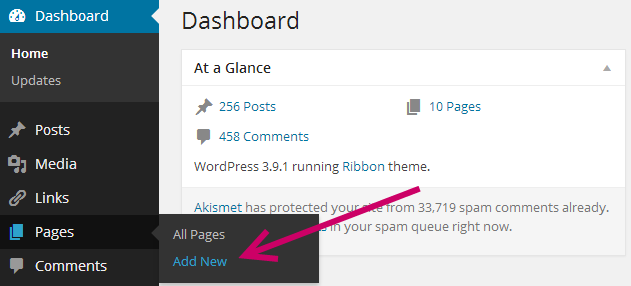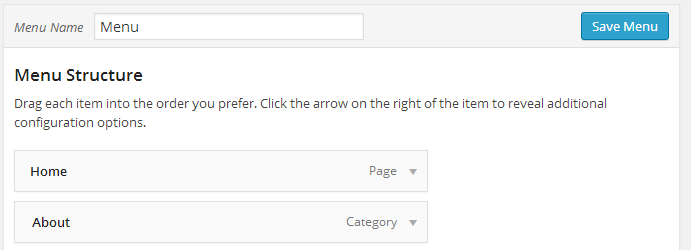How To Setup 2 Blogs On One Wordpress Websitr
You've likely heard of WordPress. After all, it's the most popular blogging platform available. However, WordPress isn't just for blogging. It is a useful content management system and can be used for creating websites with ease.
If you want to join the masses and create a website without having to invest in web design software or hire a web designer, using WordPress is well worth considering.
Now's the bit where we tell you we offer fantastic WordPress hosting with a one-click installer to get you set up in no time.
Check out our range of WordPress packages here!
So, what's the difference between a website and a blog, and by extension, the difference between a web page and a blog post?

Websites vs Blogs
By definition, a website is "a place on the world wide web that contains information about a person, organisation, etc., and that usually consists of many web pages joined by hyperlinks" while a blog is "a website on which someone writes about personal opinions, activities, and experiences."
Though those definitions imply that the difference has a lot to do with business versus personal usage, that's not quite accurate. After all, a business can have a blog and a person can have a website.
With a website, the pages tend to be more static in nature. For example, a business website might have a home / welcome page, about us page, products and services page, and a FAQs page, all of which remain unchanged for months at a time.
In contrast, a business blog is constantly being updated with new entries. The "home" page of a blog typically displays the latest entry. Blogs are more dynamic than websites. Blogs also tend to encourage visitors to interact by leaving comments.
Using WordPress, you can create two types of content: pages and posts. Pages are traditional, static web pages while posts are time-stamped entries that are placed on blogs.
If you will be using WordPress to create a standard website and not a blog, any time you create a new page, you'll choose the "add new page" option rather than "add new post."
Related: The complete guide to WordPress
To Create a Website Using WordPress
First you need to install WordPress onto your web hosting package. This can be done manually, or if you host with LCN.com, you can use our one-click install application.
Even installing manually is fairly simple; you'll need a few things first:
- Your host's FTP details (host, user and pass)
- MySQL database access
- WordPress installation files (available here)
Then follow WordPress' 'Famous 5-Minute Install' here.
Now you have installed WordPress, let's begin creating your static website!
By default, WordPress will create a blog so that all of your posts are displayed on the main page. You'll need to change this by first creating a static page and then setting it as your home page. According to WordPress Support, here's how:
- Log into your WordPress site
- Click on Pages > Add New

- Give it a title such as "Home" and type your welcome message

- Publish your home page by clicking Publish
- Click on Posts > Add New
- Give it a title such as "Blog" and don't worry about adding content
- Publish the "Blog" page by clicking publish
- Click Settings > Reading
- Under Reading Settings, you'll need to change the Front Page display so that a Static page is displayed.

- Under Front page, choose "Home."
- Under Posts page, choose "Blog."
Related: Migrating WordPress to a new host
Remove Blog From Menu
If you do not intend to ever add blog posts to your website, you'll also want to make sure that "Blog" does not appear in your menu. Do this by going to Appearance > Menus and then removing Blog from the Main Menu. Click Save Menu.

Add Static Pages
Now that your WordPress website has a static home page with no blog displaying, it's time to add more static pages. Click on Pages > Add New and create your next page such as 'About Us' or 'FAQs'.
Give the page an appropriate title and enter your text in the main content editor. Click Publish once you're happy with the content.
Turn Off Comments
Finally, you may want to turn off comments. Do this by going to Settings > Discussion and then unchecking "Allow Comments".

That is pretty much it for creating a static website using WordPress. We have removed all the blog style elements and you can now create new pages and edit your content at will – without the need for a web designer.
For further reading and information on using WordPress as a CMS / static website, check out these great resources.
http://codex.wordpress.org/New_To_WordPress_-_Where_to_Start
http://codex.wordpress.org/Creating_a_Static_Front_Page
Your Say!
Have you used WordPress before to create a static website? How did you get on? Let us know if you have any tips and tricks in the comments below.
I'm James and I'm the Senior Content Specialist at LCN.com. I have a keen interest in web development and technical SEO, and also account for over half of the Red Bull drunk in the office.
How To Setup 2 Blogs On One Wordpress Websitr
Source: https://www.lcn.com/blog/using-wordpress-create-website-blog/
Posted by: walkerlonsind.blogspot.com

Very useful Post and it is very useful and knowledgeable. Hire dedicated WordPress Developer. 100% client satisfaction.
ReplyDeleteHire woocommerce Developer
This comment has been removed by the author.
ReplyDeleteThanks for a very interesting blog. What else may I get that kind of info written in such a perfect approach? I’ve a undertaking that I am simply now operating on, and I have been at the look out for such info. Wordpress Brisbane
ReplyDelete